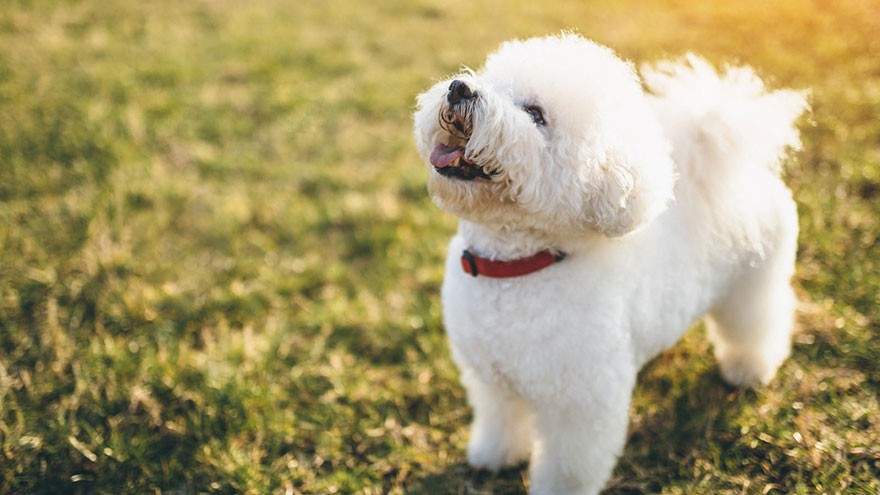Bichon Frise Training Guide
This adorable ball of white fluff has proven to be an exceptional breed for families with or without children and pets. The breed is overall a healthy choice, loving, friendly, playful, devoted, and highly intelligent.
When training this breed, it is important to use praise and positive reinforcement rather than harsh punishment. Since the Bichon Frise can be somewhat shy, improper training could lead to additional problems of biting and/or aggression.

Bichon Frise Training Guide
One of the main challenges associated with training the Bichon Frise is housebreaking. For some reason, many owners claim this dog is relatively difficult to potty train so you need to be prepared to have lots of patience. Although intelligent, the breed is not always cooperative with training methods.
Just remember, it is not impossible to housebreak this breed of dog but plan on spending time getting through the process. Additionally, we recommend you use crate training in this case, which has shown to be more effective.
When the Bichon is out of its crate, you want to keep a good visual on it. For instance, if you will be cooking dinner, go ahead, and set up baby gates at the entrances so you know where the little fellow is at all times. Then, be sure you have a solid routine that is followed carefully. The more you can get this dog on a normal regimen the quicker it will understand. When the dog is successful with an outdoor trip, offer praise and a tiny treat to support the good behavior.
As mentioned, the Bichon Frise tends to be on the shy side. Therefore, it is very important this breed have early socialization. If you are buying a Bichon for a family pet, you want to teach the children the proper way of handling and disciplining. Again, if not done right, the dog could become aggressive. Keep the shyness in mind while training.
As with any puppy, general obedience training is highly recommended. The Bichon Frise can be a little on the independent side, which is part of its wonderful personality but when it comes to training, it can be frustrating. The best option for success is to work with the puppy from a young age. We suggest you begin with training tips such as sit, stay, come, and lie down. From there, you can always expound.
Remember, with a Bichon, you want to keep it simple and supportive. Do not use forceful tactics or you could draw out the negative temperament traits that include biting and aggressiveness. With a loving hand and voice, along with some favorite treats, you will be amazed at just how well the Bichon Frise does with training.
Read More About Bichon Frise
- Bichon Frise Breed Information
- Bichon Frise : 10 Most Common Questions
- Owning a Bichon Frise : Breeder Recommendations
- Bichon Frise Health Guide

